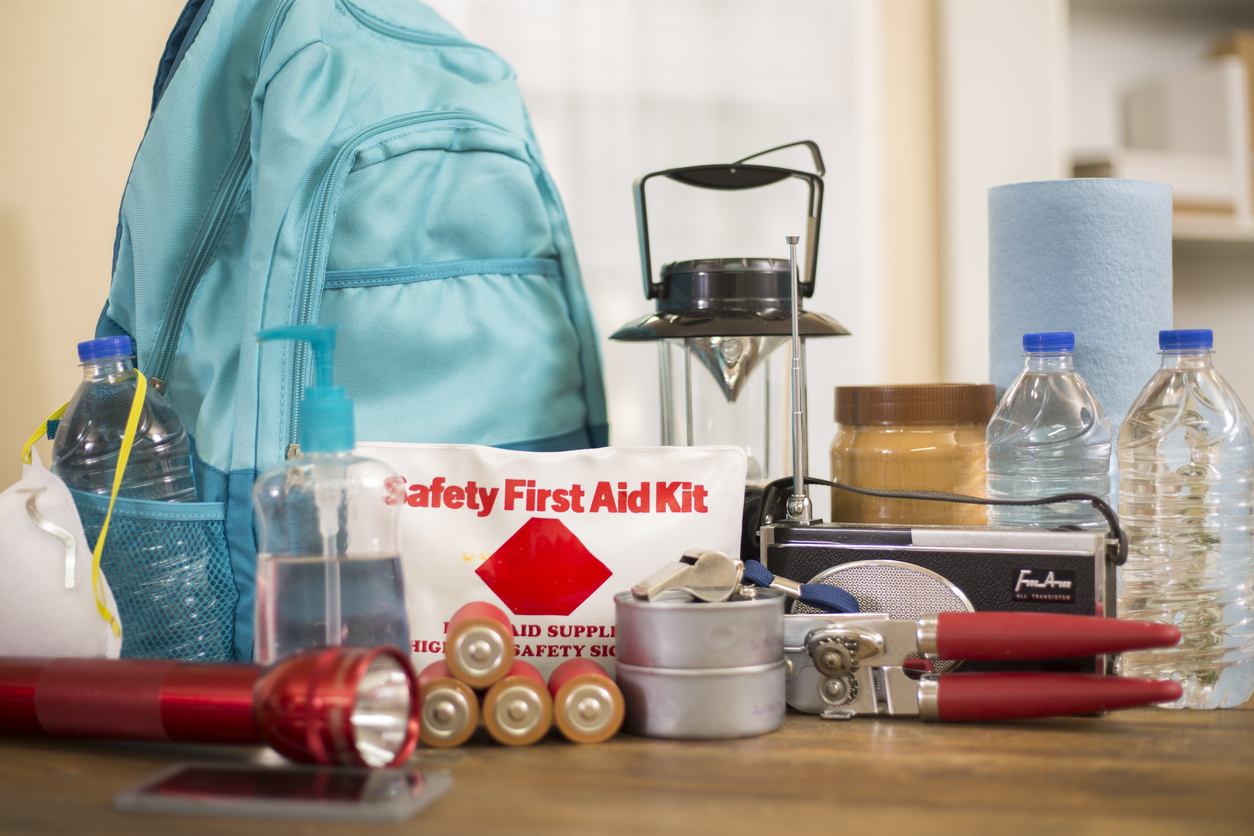The National Oceanic and Atmospheric Administration (NOAA) predicts “above-normal” activity in the Atlantic basin for the 2024 Atlantic Hurricane Season, typically lasting June through November. The agency is forecasting:
- Around 17 to 25 named storms (winds of at least 39 mph) may occur.
- Of the named storms, 8 to 13 are forecast to develop into hurricanes.
- Of the hurricanes, 4 to 7 are forecast to be major (category 3, 4 or 5; winds of 111 mph or higher).
Hurricanes and tropical storms pose significant safety risks to your home and personal safety, so it’s important to be properly prepared throughout hurricane season.
Before a Storm Hits
As storms develop, NOAA, Federal Emergency Management Agency (FEMA), and state and local authorities will provide updates, keeping you aware of a storm’s path and issuing evacuation orders when necessary. If a storm is projected to hit your area, consider these tips:
- Have a family communication plan in place.
- Keep your devices charged and keep battery packs on hand.
- Cover all your home’s doors and windows with storm shutters or 5⁄8-inch plywood.
- Move furniture and valuables to a higher elevation, if possible, if your home lies in a flood zone.
- Move all outdoor items inside.
- Store important documents (e.g., birth certificates or Social Security cards) in watertight containers.
- Make sure your generator, if you have one, is serviceable before the storm.
- Follow local evacuation orders and consider evacuating even if you are not required to.
- Prepare an emergency kit with dry goods, a NOAA radio, flashlights, clean water and first-aid supplies.
During the Storm
When riding out a storm, do all you can to stay safe, including the following:
- Make sure your home is completely secure and do not go outside during the storm.
- Turn off all gas lines and consider turning off all utilities.
- Monitor the TV and radio for ongoing weather developments.
- Shelter away from doors and windows. Stay on the lowest level of your home, away from high winds, as long as it the area is safe.
- If your home is flooding, move to higher ground in your home.
After the Storm Passes
Do not leave your home until local authorities deem it safe to do so. Even if it seems calm outside, it may not be safe to be outdoors yet—this may be the eye of the storm. Continue to shelter until you hear otherwise. Expect emergency service delays in your community following a storm. Roads may be flooded, power may be out and debris may be on the streets. After the storm, you will need to assess and repair any damage that may have occurred. As cleanup begins, remember the following:
- Be cautious of residual rain and flooding, even after the main storm has passed.
- Be very careful when exiting your home. Debris, fallen trees and exposed wiring can make it hazardous to move around.
- Document damage to the outside of your home. Call your home insurer to file a claim as soon as you can. Insurers are often inundated with calls following natural disasters.
- Do not try to make repairs to your home by yourself without professional assistance.
- Seek medical attention or shelter from the local emergency services if necessary.
- Do not turn on your gas, electricity, plumbing or heating, ventilating and air conditioning system until you confirm there is no damage to the lines.
- Keep pets and children inside. It is not safe for them to wander.
If you are separated from your family, use your family communication plan or contact the American Red Cross at 1-800-RED-CROSS (1-800-733-2767). You can also contact your local Red Cross office for more information.
Stay Safe During Storms
Use the tips provided here and any federal, state and local guidance to keep yourself and your family safe throughout the hurricane season. For more risk management resources, contact the local insurance experts at Deeley today. Call or text 410-213-5600.








